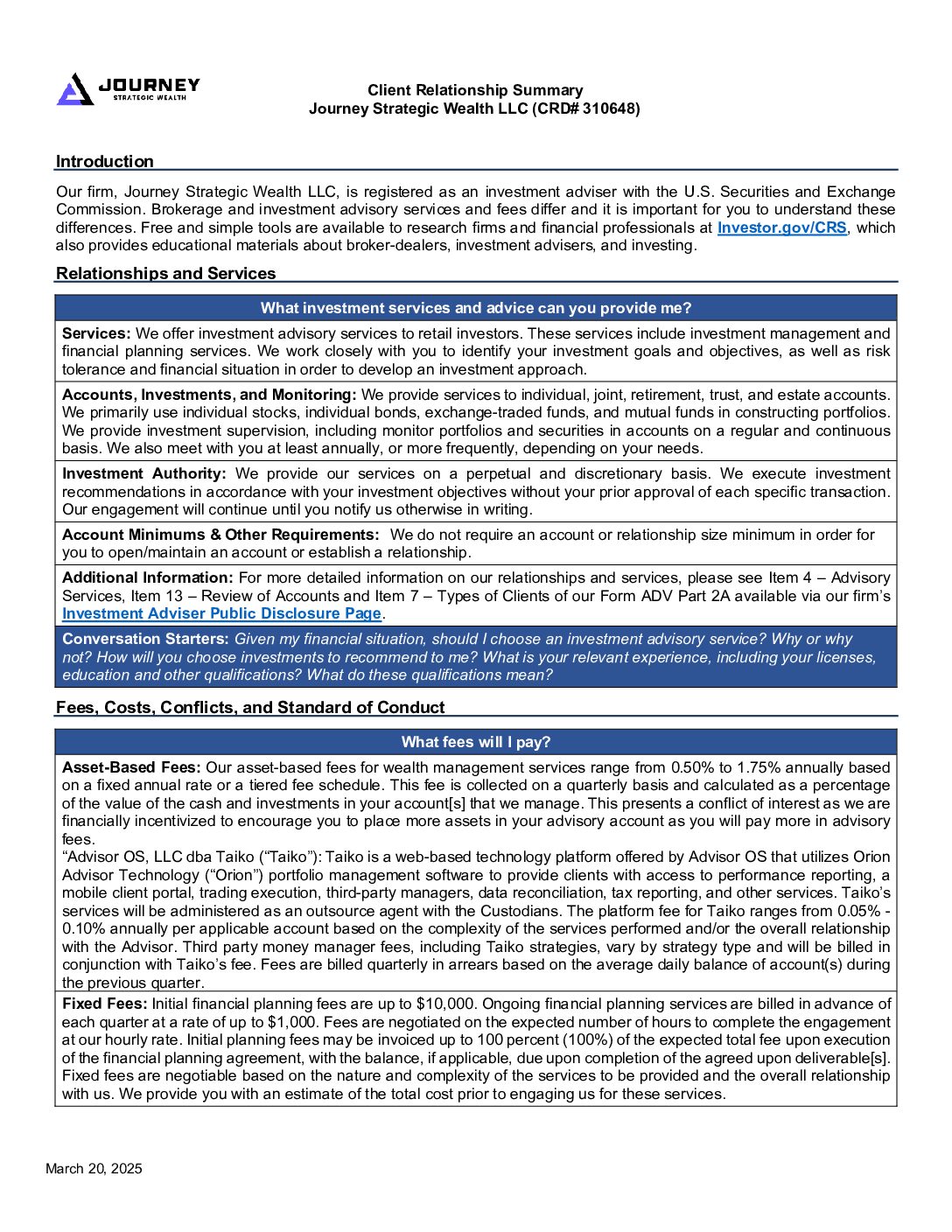Three Ways AI Is Transforming the Client Experience in Wealth Management
The rise of AI has impacted nearly every industry, application, and interaction we have, from Spotify’s smart playlists to Amazon’s product recommendations to custom workout plans distributed by personal trainers.
I like the last example the best, because it’s analogous to how I believe AI will affect your experience with your financial advisor. In the article, the author takes care to call out the fact that AI hasn’t replaced her personal trainer – it has simply augmented the way they work together to make his services both more personalized and more affordable.
As the use of AI in financial services continues to grow and evolve, I think it’s important to understand how it could change – hopefully for the better! – both your outcomes and your relationship with your financial advisor.
1. Streamlined Onboarding and Account Opening
Depending on your first experience with a financial professional, you may have lived through the frustrations and inefficiencies associated with manual onboarding and account opening. Filling out documents by hand is notoriously tedious, repetitive and error-prone, creating a lengthy process that often pushes back your ability to fund accounts and start trading.
By contrast, thanks to AI-powered OCR (Optical Character Recognition) and NLP (Natural Language Processing), forms can be automatically populated, checked for errors, and digitally signed, significantly reducing time and administrative burdens.
2. Enhanced Investment Management and Portfolio Personalization
Not only does AI make data entry more efficient, but it also enhances your financial professional’s ability to use data effectively by synthesizing, analyzing, and surfacing key information that can be used to inform your work together, including:
- Advanced risk tolerance assessments through behavioral analysis, scenario testing, and dynamically updated risk profiles
- Optimized investment selection via rigorous quantitative analysis to identify the right fit for your goals, timeline, and risk tolerance
- Streamlined portfolio rebalancing and optimization through continuous portfolio monitoring, real-time rebalancing alerts, and tax-loss harvesting opportunities
As a financial advisor myself, I can tell you we’re always looking for ways to tailor your experience in service of your unique goals without sacrificing the time we actually spend with you. AI enables more personalized recommendations by automating the more tedious tasks associated with managing portfolios.
3. Stronger Advisor-Client Relationships
It may sound counterintuitive, but I believe AI and technology will actually improve the human relationships that make up the foundation of the work we do. We’ve already talked about the efficiency-enhancing capabilities of AI, which certainly free up advisors to get out of the operational weeds and focus more on time spent with you – answering questions, offering guidance, or simply checking in.
But because of capabilities like pattern recognition and complex behavioral and historical data analysis, AI can also help your advisor predict when you might need additional proactive outreach – say, approaching a significant financial deadline or in the face of market turbulence.
The Future is Human and Machine
Anyone who tells you AI is going to replace human financial advice is, I believe, shortsighted and extreme. The truth is, AI can’t replicate the nuanced, empathetic, and compassionate approach good financial advisors take to managing their client relationships. What it can do is make it easier for advisors to spend more time on those relationships – a benefit for both sides.
If you have questions about AI’s role in your own wealth management experience, or want to learn more about how we’re leveraging technology at Journey Strategic Wealth, get in touch here.
This material is distributed for informational purposes only. Investment Advisory services offered through Journey Strategic Wealth, an investment adviser registered with the U.S. Securities and Exchange Commission (“SEC”). The views expressed are for informational purposes only and do not take into account any individual’s personal, financial, or tax considerations. Opinions expressed are subject to change without notice and are not intended as investment advice. Past performance is no guarantee of future results. Please see Journey Strategic Wealth’s Form ADV Part 2A and Form CRS for additional information.

























